Is PNG or JPEG Better for Printing: Here’s Answer!
Delving into the age-old debate of PNG vs JPEG for printing, clarity is essential. While both formats have their merits, understanding their differences is crucial for optimal print results. If you spend time to understand what the main difference is when printing with either of these formats, you will be able to produce the optimal print results!
Dive into this guide to uncover the nuances of each format and make an informed decision tailored to your printing requirements.
Part 1. PNG vs JPEG: A Full Comparison
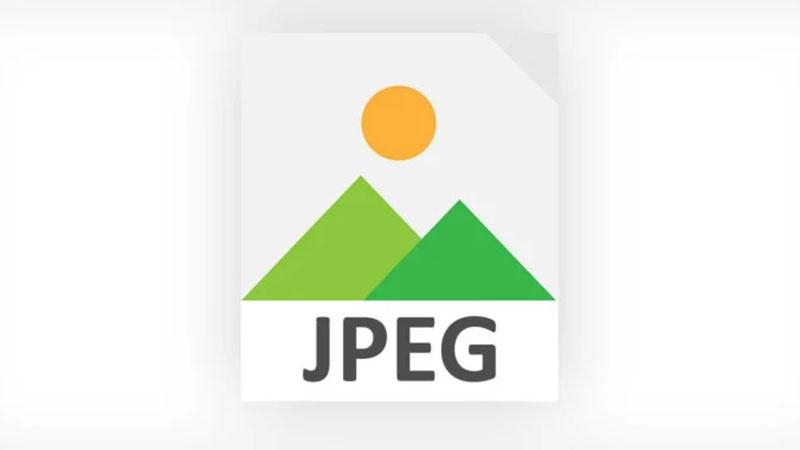
In the realm of digital image formats, PNG (Portable Network Graphics) and JPEG (Joint Photographic Experts Group) stand as stalwarts, each with its own strengths and weaknesses. Delving into their comparative analysis unveils essential aspects to consider for printing endeavors. Let’s embark on a journey to dissect these formats across four critical factors: Image Quality, File Size, Transparency Support, and Use Cases.
1. Image Quality
PNG and JPEG offer distinct approaches to image compression, impacting their quality differently. PNG, known for lossless compression, retains image integrity without sacrificing detail, making it ideal for graphics with text or sharp edges. Conversely, JPEG utilizes lossy compression, resulting in some loss of image fidelity to reduce file size, which is more suitable for photographs. However, concrete data reveals PNG's superiority in preserving image quality, making it ideal for printing high-resolution graphics and illustrations.
2. File Size
File size plays a pivotal role in digital storage and transmission, impacting everything from storage capacity to loading times. JPEG's lossy compression algorithm significantly reduces file size, making it more manageable for storage and faster for online transmission. However, this reduction in size often comes at the expense of image quality, as the compression algorithm discards some data during the process. On the other hand, PNG, with its lossless compression, maintains larger file sizes but ensures every pixel retains its original data, resulting in superior quality images. Concrete data illustrating the trade-off between file size and image quality can guide printing decisions based on priorities, ensuring the desired balance between storage efficiency and visual fidelity.
3. Transparency Support
Transparency adds versatility to digital images, enabling seamless integration into various design projects. PNG excels in transparency support, offering an alpha channel that preserves transparency information. This feature proves invaluable for printing graphics with complex backgrounds or overlays. Conversely, JPEG lacks native support for transparency, limiting its utility in such scenarios. Understanding transparency requirements is essential for selecting the appropriate format for printing purposes.
4. Use Cases
The suitability of PNG and JPEG extends beyond mere technical specifications to encompass diverse use cases. PNG finds its niche in scenarios where image fidelity and transparency are paramount, such as printing logos, graphics, or digital art. Conversely, JPEG shines in situations prioritizing file size and web compatibility, making it ideal for printing photographs or web graphics. Recognizing these distinct use cases empowers users to leverage each format effectively for optimal printing outcomes.
By scrutinizing these factors—Image Quality, File Size, Transparency Support, and Use Cases—we unravel the intricate nuances of PNG and JPEG, enabling informed decisions tailored to specific printing requirements.
Part 2. Is PNG or JPEG Better for Printing?
When it comes to printing, both PNG and JPEG have their merits, yet their suitability depends on the nature of the image being printed. While JPEG excels in reproducing photographs and images with complex color gradients, PNG is preferred for graphics with transparent backgrounds and text-based images due to its lossless compression.
However, in the case of JPEG, its lossy compression algorithm efficiently handles the subtle variations in color and tone, resulting in smooth transitions and natural-looking prints. This makes JPEG an optimal choice for printing photographs, digital artwork, or images with intricate color palettes.
On the other hand, PNG shines when it comes to images with sharp details and transparency requirements. Its lossless compression preserves every pixel's original data, ensuring crisp edges and fine details remain intact. Additionally, PNG's support for transparency, thanks to its alpha channel, enables seamless integration of graphics with complex backgrounds or overlays into printed materials. This makes PNG the preferred format for printing logos, graphics, icons, or images with sharp lines and text. With PNG, you can confidently maintain image quality and transparency in various design projects, ensuring professional results.
Ultimately, the decision between PNG and JPEG for printing hinges on the specific characteristics of the image and the desired outcome. JPEG's efficiency in handling complex color gradients makes it ideal for photographs and images with nuanced shading, while PNG's ability to maintain sharp details and transparency support renders it suitable for graphics with distinct edges and overlays.
By considering these differences, users can select the most appropriate format to achieve optimal printing results tailored to their needs and ensure that their images retain their quality and integrity throughout the printing process.
Part 3. Pro-Tips. Convert Between PNG and JPEG with HitPaw Univd (HitPaw Video Converter)
HitPaw Univd supports various output formats, including PNG and JPEG. It provides high-speed conversions and high-quality outputs so that users can have a seamless converting experience.
Why Choose HitPaw Univd to Convert Between PNG and JPEG
- HitPaw Univd allows its users to convert more than one file at a time.
- HitPaw Univd provides various output formats, making it more compatible with other platforms.
- HitPaw Univd provides reliable customer service so that users get a seamless converting experience.
- HitPaw Univd provides high-speed conversions, saving its users their precious time.
- HitPaw Univd provides an intuitive interface, making navigation easy for users of all skill levels.
Steps to Convert Between PNG and JPEG
Step 1 — Download and install the HitPaw Univd on your computer.
Step 2 — Launch HitPaw Univd and switch to the Toolbox tab. Choose Image Converter function to import image(s). You can import as many photos as you need.
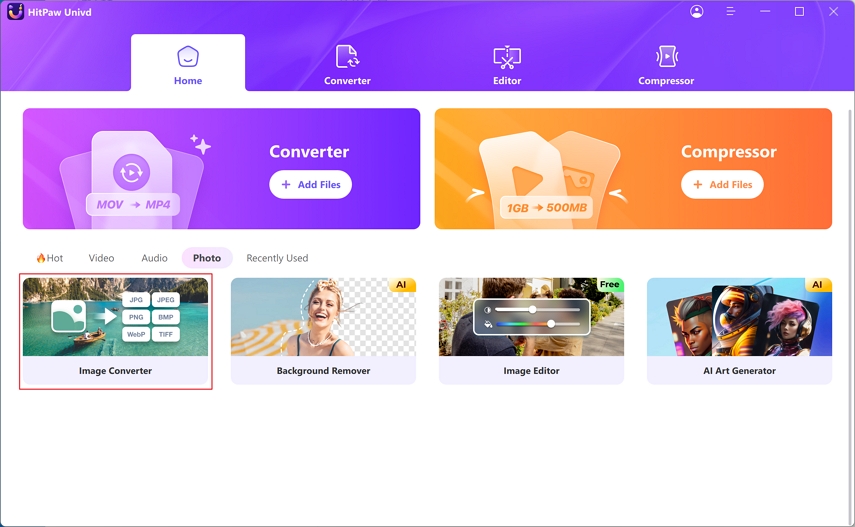
Step 3 — In the “Convert all to” option, you can choose an output format for all the imported images. Currently HitPaw Univd supports the following output formats: JPG, WEBP, PGN, BMP, TIFF, and JPEG. In the “Save to” option, you can choose an output directory for the converted images.
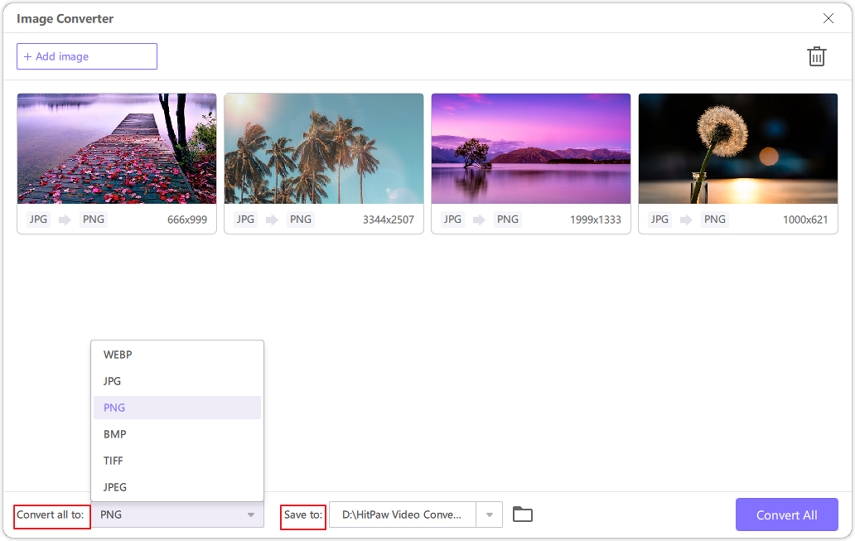
Step 4 — Click the Convert All button to batch convert image to JPEG or PNG in high speed.
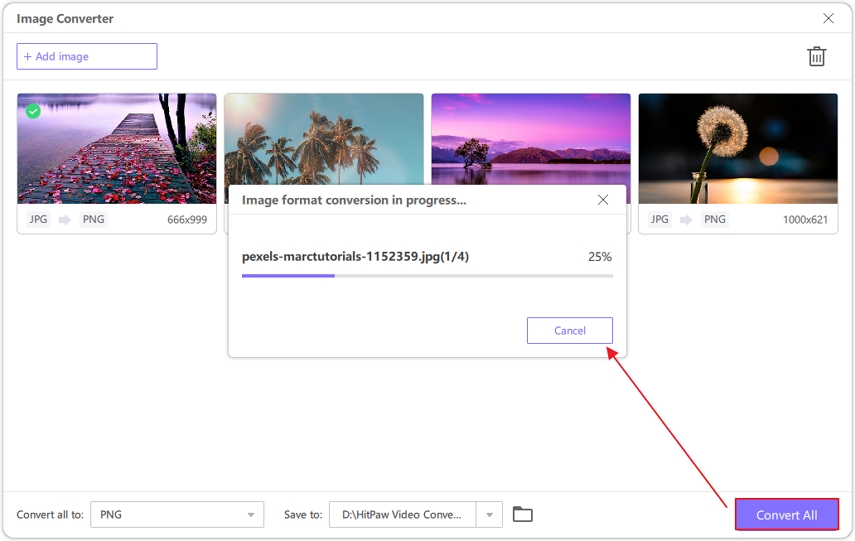
Conclusion
In conclusion, the debate between PNG and JPEG for printing unveils nuanced considerations in image quality, file size, transparency support, and use cases. While both formats have their strengths, HitPaw Univd stands as a versatile solution for converting between these formats effortlessly, ensuring optimal printing outcomes tailored to diverse needs.
Make informed decisions and streamline your printing workflow with HitPaw Univd.






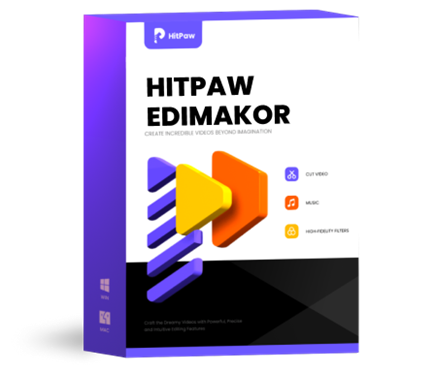 HitPaw Edimakor
HitPaw Edimakor HitPaw VikPea (Video Enhancer)
HitPaw VikPea (Video Enhancer)



Share this article:
Select the product rating:
Joshua Hill
Editor-in-Chief
I have been working as a freelancer for more than five years. It always impresses me when I find new things and the latest knowledge. I think life is boundless but I know no bounds.
View all ArticlesLeave a Comment
Create your review for HitPaw articles